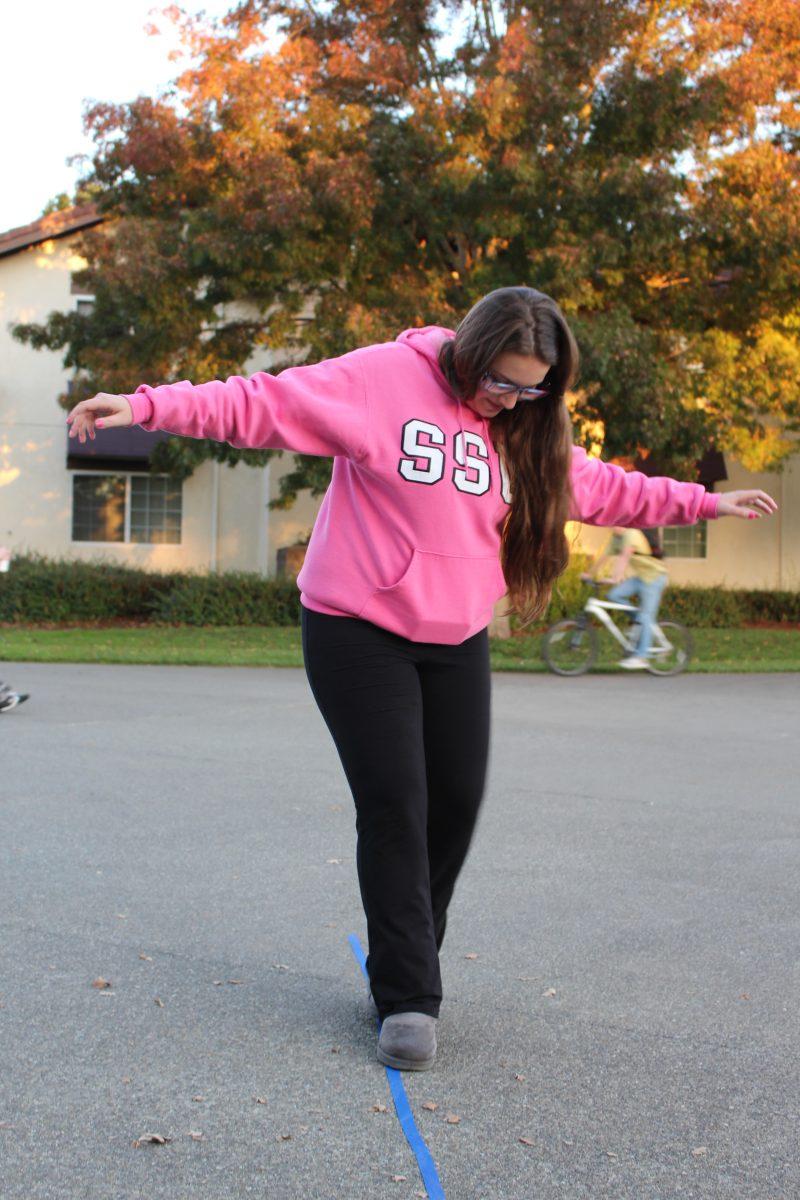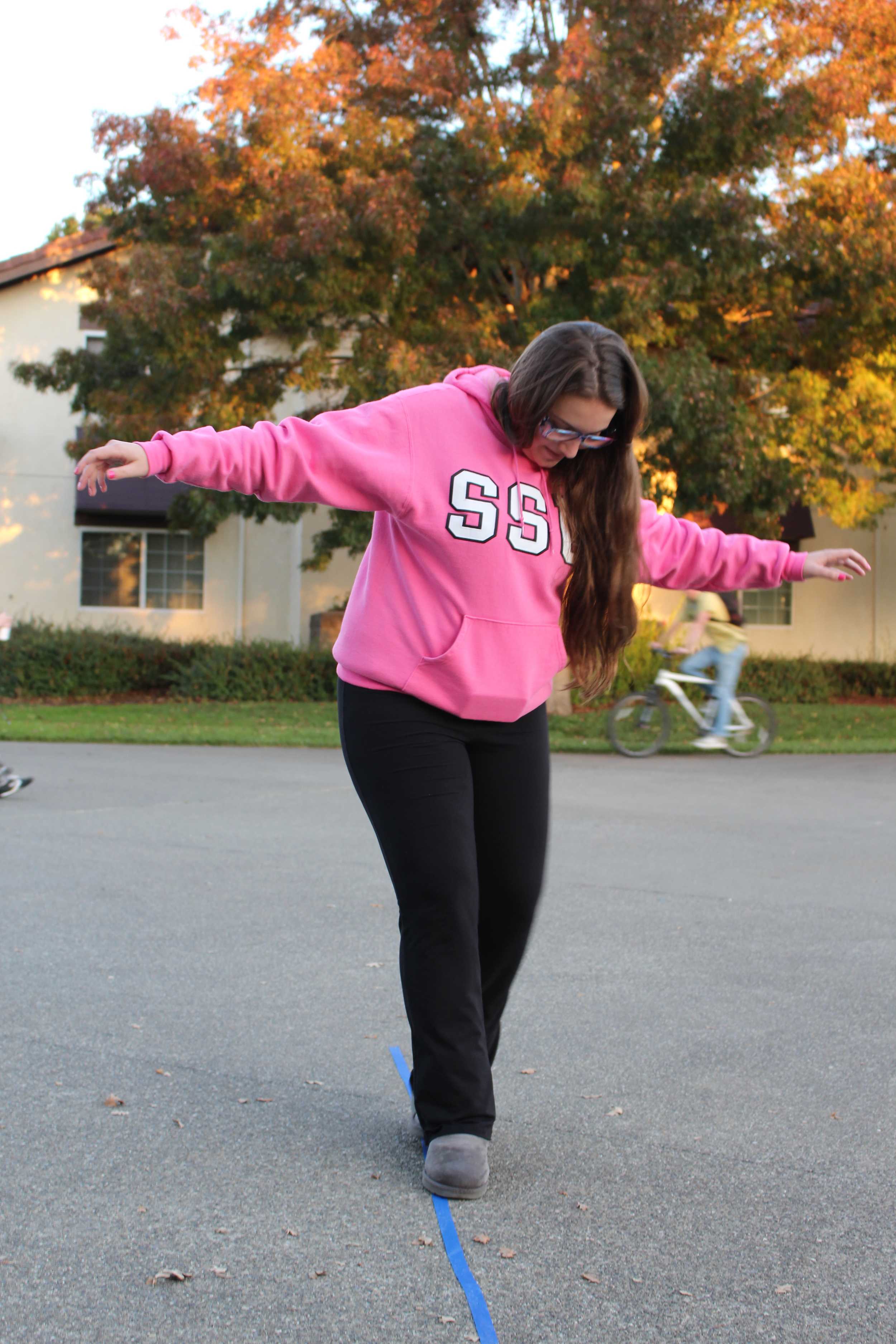Words of wisdom from a peer can be more influential than those from a superior, so the students and faculty who organized this year’s Alcohol Awareness Week wanted to relate to students in a way that would make a lasting impact and would not sound like another lecture.
The California State University system is taking a proactive approach to alcohol abuse on each of its campuses. Sonoma State dedicated last week to alcohol awareness by hosting daily events and weeklong displays that stressed the importance of drinking responsibly.
“It’s not a secret that college students are going to drink,” said Mo Phillips, associate director of student development. “Our goal is not to make people quit. We just hope that they will think twice before getting behind the wheel or getting into a car with someone who has been drinking.”
The Residential Student Association and the Student Health Center collaborated with other campus organizations to make the week educational and entertaining. To make a visual impact, students put up 1,800 red flags in the Darwin Quad to represent the students who pass away every year from alcohol related accidents.
“It was chilling to see that many flags in the ground at the end of the week,” said student Matt Lindberg, who coordinated the flag project. “I’m not encouraging students to change their weekend plans because of this week, but instead to really think about their decisions and whether they are under the influence or not.”
Students created a wall where others could share their experience with drugs and alcohol and how it has affected their lives. A crashed car was also brought to campus to serve as a visual representation of the effects of drunk driving.
The week’s events began with The Great Drinking Debate, which was held on Monday. It was an opportunity for students to discuss issues such as the legal drinking age and rules regarding drinking on college campuses.
On Tuesday students were able to watch the documentary “Death by Alcohol: The Sam Spady Story,” which told the story of a 19-year-old college student who died from alcohol poisoning.
The Beer Goggle Olympics held on Wednesday educated as well as entertained those who attended.
Thursday’s program “I Thought They Would Just Sleep it Off” was relevant to many college students since they are often afraid to get help for a friend who may have ingested too much alcohol because of fear of punishment.
The interactive program taught students how their decisions affect themselves as well as others around them. The program stressed that calling for help could save someone’s life, which outweighs the possibility of discipline.
In California there are laws that protect individuals from punishment when making life saving decisions regarding drugs or alcohol. These “Good Samaritan” laws protect those who call for medical assistance for themselves or others while under the influence of alcohol.
Those who organized Alcohol Awareness Week wanted students to know that they should call 911 if they suspect someone has had too much to drink or is experiencing an overdose, regardless of possible punishment. However, these laws do not apply to campus disciplinary action.
“Campus authorities will take into account the situation. They want everyone to be safe,” said Toni Boracchia, a registered nurse at the Student Health Center. “Students are also afraid of their parents’ reactions, but any parent would rather have their child be in trouble than dead.”
According to Police and Parking Services, there were 40 alcohol related incidents on campus that required police intervention in 2012.
“We are a pretty average university but that doesn’t mean we aren’t concered,” said Phillips. Phillips hopes the new Student Center will give RSA and ASP an opportunity to change campus binge drinking culture.
“We will be able to do some awesome programming,” said Phillips.
There are 3,100 students currently living on campus. Many of those students travel off campus for entertainment.
The new Student Center will provide spaces to put on late night events on campus that are appealing to students. These may include comedy shows, hypnotists, live music and improvisation.
The center will have event and meeting spaces that will give students more options when planning events, as well as be able to host large on-campus dances in the ballroom, allowing students to gather and socialize in a safe and fun environment.





![[Both photos courtesy of sonoma.edu]
Ming-Ting Mike Lee stepped in as the new SSU president following Sakakis resignation in July 2022](https://sonomastatestar.com/wp-content/uploads/2024/04/CC4520AB-22A7-41B2-9F6F-2A2D5F76A28C-1200x1200.jpeg)



























